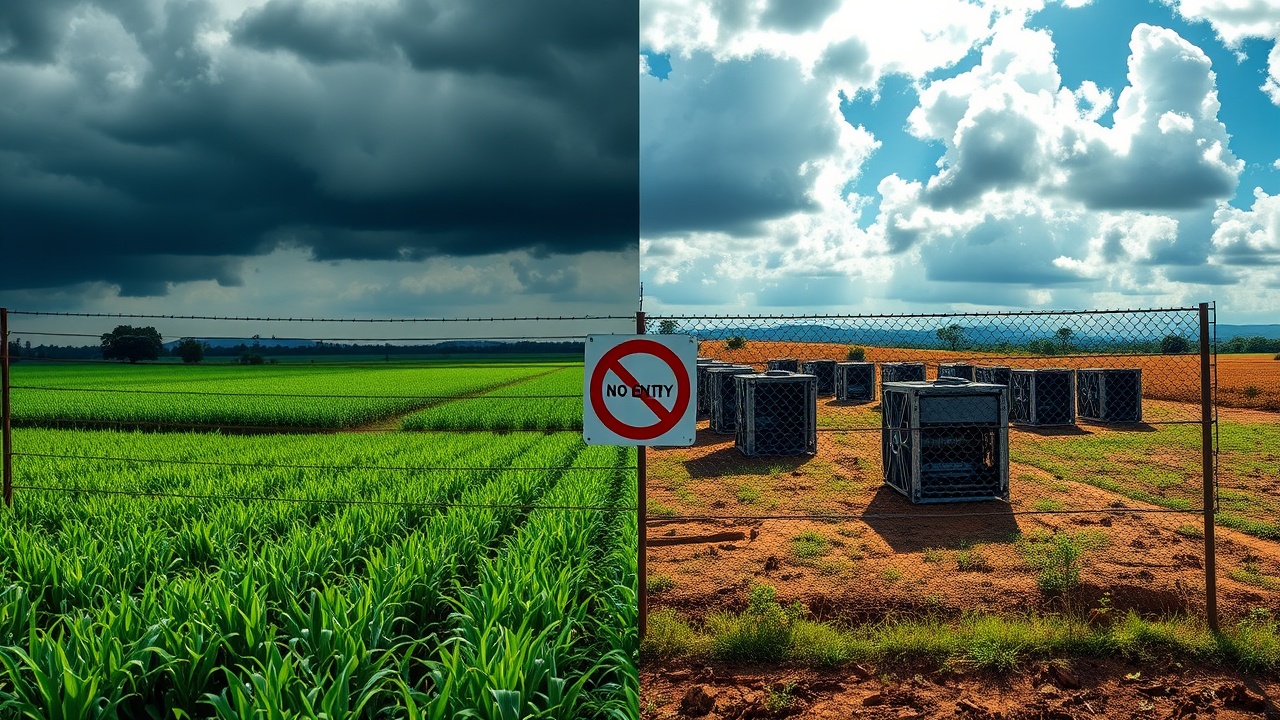Prohibition on Cryptocurrency Mining in Abu Dhabi
The Abu Dhabi Agriculture and Food Safety Authority (ADAFSA) has implemented a prohibition on utilizing agricultural land for the purpose of cryptocurrency mining, as announced on Tuesday. This regulatory body, which oversees farming practices in the emirate of Abu Dhabi in the United Arab Emirates (UAE), has stated that such activities are detrimental to the region’s sustainability initiatives and violate existing land use regulations.
Consequences of Violating the New Rule
Violating this new rule could lead to severe penalties, including:
- Fines reaching 100,000 AED (approximately $27,229)
- Confiscation of mining equipment
- Suspension of local municipal services
- Disconnection of farms from power sources
Commitment to Sustainability
ADAFSA clearly outlined that mining activities are not compatible with the authorized economic uses for farmland, emphasizing their commitment to preserving agricultural resources. The decision comes amidst a broader discussion regarding the environmental consequences of crypto mining, where detractors highlight the adverse impacts on ecosystems while proponents argue for the potential benefits of innovative mining practices that repurpose wasted energy.
Energy Sources and Environmental Impact
The competitive nature of crypto mining, fraught with slim profit margins, often compels miners to exploit inexpensive energy sources. Research indicates that over half of the energy used for Bitcoin mining derives from renewable resources such as hydroelectric, geothermal, and even excess energy captured from industrial processes, such as gas flaring and methane extraction from landfills. A study released in August 2024 presented a model for converting landfill methane into energy for Bitcoin mining, portraying a dual benefit: generating electricity while reducing harmful greenhouse gas emissions.
Ongoing Debates and Regulatory Efforts
Despite findings that suggest crypto mining could play a role in reducing global emissions—evidence put forth in papers like “Bitcoin and the Energy Transition: From Risk to Opportunity”—opposition persists. In the United States, lawmakers have been pushing for regulations through the Environmental Protection Agency (EPA) to mitigate the harmful effects of mining on air and water quality, as well as to address noise pollution generated by these operations. As debates continue, ADAFSA’s ban reflects an ongoing commitment to environmental integrity in agricultural practices within its jurisdiction.




